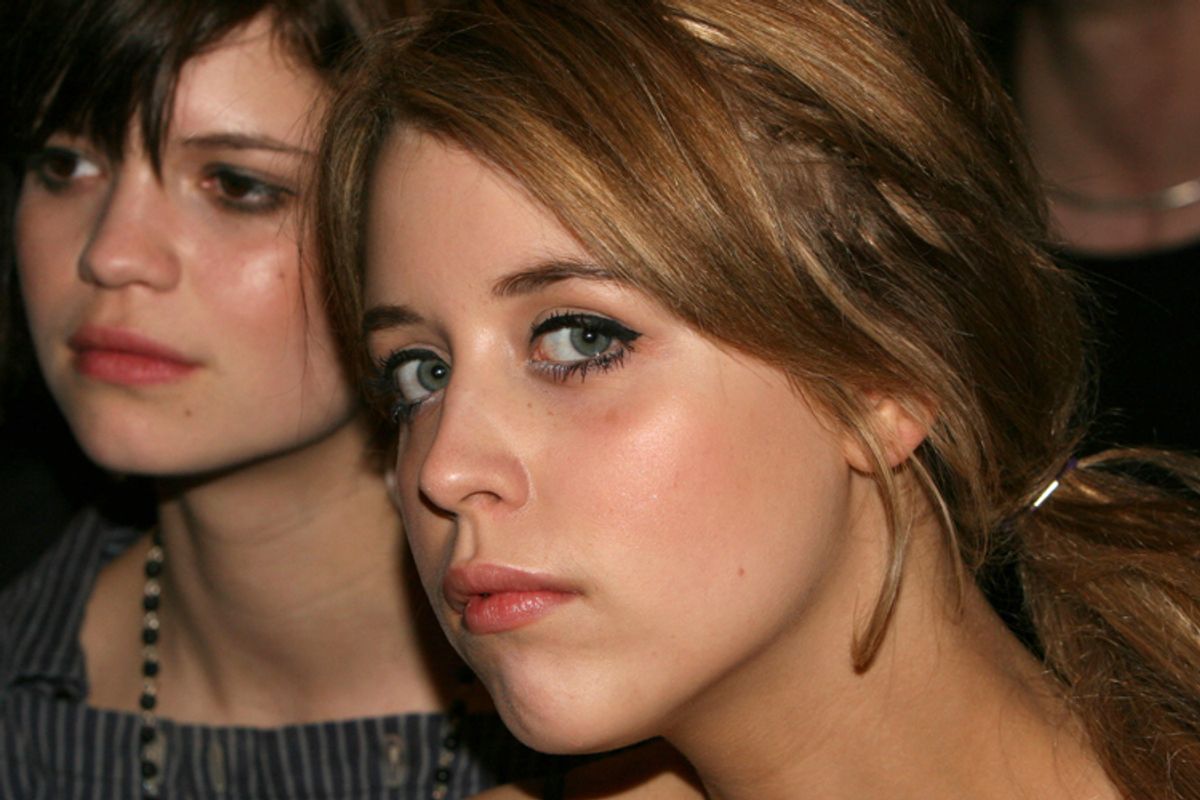You'd think she would have been the last person on earth to die a heroin-related death. You'd think that'd she'd know too well the toll of substance abuse and the pain of losing a mother much too young. You'd think she'd have done anything to protect her two adored young children. You'd think that – unless you knew anything about drugs.
It's been a month since Peaches Geldof, the 25-year-old British TV presenter, model and daughter of Bob Geldof, died suddenly at her home in Kent. Her rocker father grieved her at the time, calling her "the wildest, funniest, cleverest, wittiest and the most bonkers of all of us." In her short life, Geldof lived up to that reputation, making a name for herself as a bright, appealing young writer and media personality. More than that, though, she seemed determined to chart a different course in life than the one she'd grown up with.

Shortly before her death, she wrote a column for Mother & Baby magazine, describing how she'd left behind the "haze of youth and no responsibilities" when her "two wailing, smiling, joyful little blobs of waddling pink flesh, became my entire existence, and saved me from one of pure apathy." She said she was "happier than ever" and that "I’ve achieved a sort of perfect balance. Right now life is good. And being a mum is the best part of it." Her last Instagram was a photograph of her as a toddler, in the arms of her mother, Paula Yates. Hours later, she was dead. Now, four weeks later, the London Times says that a coroner's report reveals the cause of her death, with Detective Chief Inspector Paul Fotheringham stating, "Recent use of heroin and the levels identified were likely to have played a role in her death." The Times adds that Geldof "had become increasingly obsessed with the death of her mother, Paula Yates, from a heroin overdose in 2000" -- on her daughter Pixie's 10th birthday. At the time of her death, Yates had endured the loss – ruled a suicide -- of her then-partner Michael Hutchence, had lost custody of three children she'd had with Geldof, and had been hospitalized after an alleged attempt to kill herself. But even in Peaches Geldof's final hours, she was to her simply "mum."
And like her mother, Geldof struggled with substances. Four years ago, lingerie brand Miss Ultimo dumped her after allegations she'd gone on a drug-fueled binge in Los Angeles. In 2008, she was questioned by police after being seen offering money to a dealer. Soon after, she reportedly had to be revived after an overdose.
Yet more recently she'd presented the image of a contented former wild child, a mother who'd settled down and someone who described herself as happy. Why would someone who had a spouse and two small children, and who friends said had stopped doing drugs even before she'd become a mother, throw it all away? Does it matter that the current speculation is that her death was a result of being relatively clean, and of not being able to tolerate the quantity of drugs?
Any non-addicted person would say that heroin is a bad idea, period. Any person, addict or not, would tell you that nobody wants to be the person who dies with heroin in their body. Nobody wants to go before their children can even remember them. Philip Seymour Hoffman didn't want that. Peaches Geldof didn't want that. The thing of it is, though, the drugs don't care. They don't care what you want. They don't care if you say you're happy. They don't care if you say you were "traumatized" by your own experience of loss and that you believe you can "correct those awful parts of my childhood." Because whatever your brain and your heart know, the part of you that craves is still going to try to kill you. Every day it doesn’t win, you're lucky. And the moment you get confident you can outsmart it, it'll destroy you and leave your children without a parent, just as it left you without one. In her last interview, Geldof said, "Now I have the kids I can heal the situation. It’s so good in every single way, really." And until that day in April, it probably was.



Shares